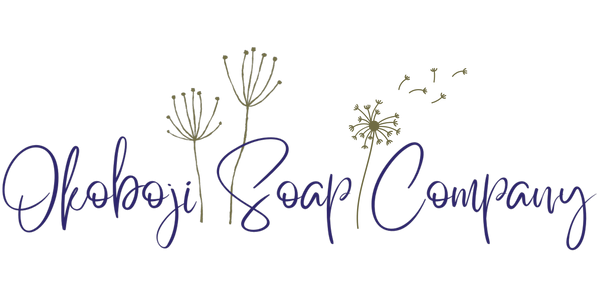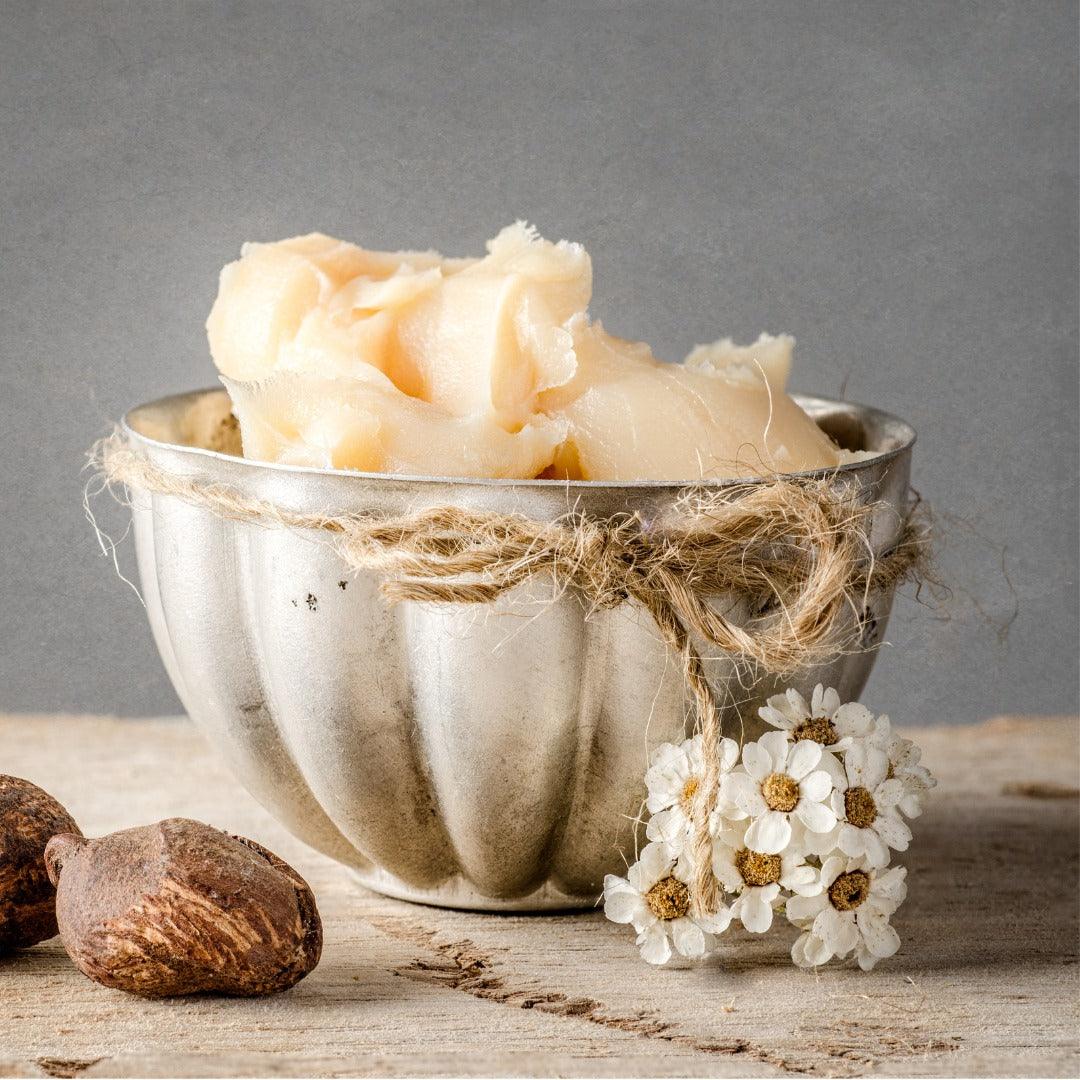
The Magic of Shea Butter
Interestingly enough, shea trees do not produce fruit before they are 20 years old, and the trees do not go into full production until they are around 45 years old. Shea trees grow naturally in the dry Savanna region of West Africa, Northern Uganda, and Southern Sudan, and they amazingly produce fruit for up to 200 years.
There are mechanical ways to produce shea butter, however, the long-established method of hand-processed extraction continues to be followed amongst African women who group together for the activity, and ultimately, they provide their families with economic means resulting from their efforts.
The traditional method of shea butter extraction is laborious:
- Shea fruits are collected from the ground after they fall from the shea tree. The fruit itself is sweet and edible.
- The kernels are removed from the fruit and the shell surrounding the kernels are cracked to expose the nuts.
- The nuts are removed from the shells and are left to dry in the sun.
- Once dry, the nuts are crushed and ground into small pieces.
- The small pieces are roasted and hand-stirred in large pots over wood fires, which releases the fat and transforms the nuts into a paste.
- Water is added to the paste and then the mixture is whipped by hand.
- The mixture becomes a thickened paste as it cools and it is then washed with clean water.
- The paste is then re-heated which causes fats to rise to the top, and the desired shea oil to settle to the bottom.
- The fat is skimmed off the top and the oil that has collected on the bottom hardens as it cools. This hardened oil, which is raw shea butter, is then packaged and ready for shipment.

Shea butter differs in color because shea nuts range in color from nearly white to yellow. Shea butter also differs in odor. Shea butter that smells slightly smoky has picked up the scent from the open fire where it was hand-processed. It is said if shea butter has no odor, it has either been over-processed (is not raw), or it has aged and is not fresh. Shea butter should never smell rancid. If it does, it should be discarded.
Beloved Benefits of Shea Butter in Skincare...
Shea butter is one of the top ingredients included in cosmetics today, loaded with natural vitamins as well as antioxidants and fatty acids, which are essential for maintaining healthy skin. It contains vitamins A, E, and F, which help to soothe, hydrate, and balance the skin. The fatty acids in shea butter, such as oleic, stearic, palmitic, and linolenic acids, provide deep moisturizing properties and help to create a barrier that locks in moisture.
Shea Butter in Lotions...
In its raw state, it is often used for smoothing wrinkles, sun protection, scar prevention, eczema, skin allergies, insect bites, and as a hair product that adds moisture and sheen. Lotions that contain shea butter are particularly beneficial for those with dry or sensitive skin. These lotions provide long-lasting hydration without leaving a greasy residue. They are often combined with other ingredients like humectants and emollients to enhance their moisturizing effects and address specific skin concerns such as aging, acne, or sun protection.

Shea is also available in oil form, however, this form of shea does not contain the same level of vitamins, antioxidants, and other beneficial properties in comparison to raw shea butter.
People that are allergic to nuts are generally not allergic to shea butter. Even though shea butter is extracted from the nut of a fruit, research indicates that shea butter does not contain the proteins that are considered allergens.
Conclusion:
Shea butter is a powerhouse ingredient that offers numerous benefits for the skin.
Key Benefits
- Moisturizing: Shea butter is an excellent moisturizer for dry skin. It penetrates deeply to hydrate and nourish the skin, making it soft and supple.
- Anti-inflammatory: The anti-inflammatory properties of shea butter help to reduce redness and swelling, making it ideal for sensitive skin.
- Antioxidant: Rich in antioxidants, shea butter helps to protect the skin from free radicals and environmental damage.
- Anti-aging: The vitamins and fatty acids in shea butter promote collagen production, which can help to reduce the appearance of fine lines and wrinkles.
- Healing: Shea butter has been used for centuries to treat minor skin irritations, such as cuts, burns, and insect bites, due to its healing properties.
Whether you're dealing with dryness, sensitivity, or signs of aging, incorporating shea butter into your skincare routine can help to nourish, protect, and rejuvenate your skin. So next time you're shopping for skincare products, look for those that contain this magical ingredient and experience the difference for yourself.
Feel free to spark a discussion and add your tips and experiences by leaving a comment below!

